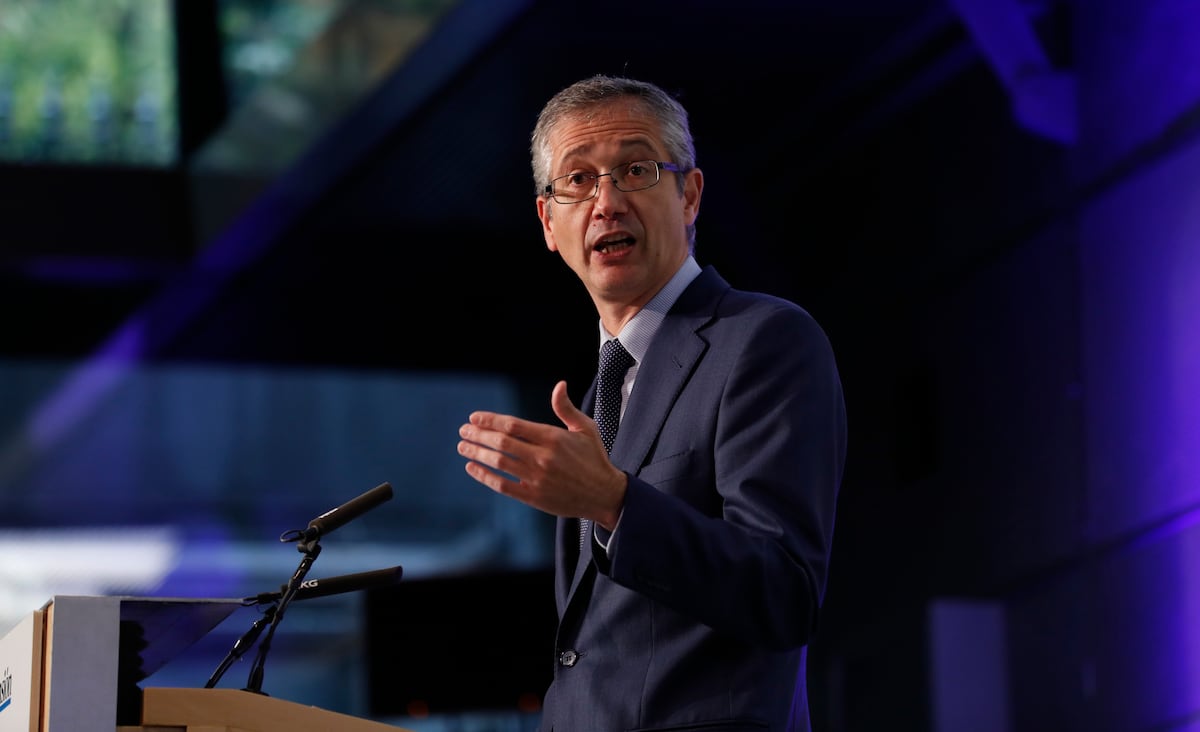Hernandez de Cos appointed as new Managing Director of the Bank for International Settlements | Economy

Pablo Hernandez de Cos, former governor of the Bank of Spain, has been elected managing director of the Bank for International Settlements (BIS). He will replace Mexican Agustin Carstens and will take up his duties on July 1, 2025 for a five-year term. BIS is the international institution responsible for coordinating and setting global standards for banking and finance regulation. This is also think tank very influential on the economy, monetary policy and the financial sector. Every two months it brings together about 50 central bankers from around the world to discuss economic issues, monetary policy and exchange rates.
The potential for Hernandez de Cos’s influence on economics and international banking regulation will be significant. And his appointment comes at a time when there are concerns that overall regulation of the financial system will be called into question following Trump’s arrival in the White House. The United States may even begin a process of financial deregulation that will pull other countries with it. Hernandez de Cos’s biggest challenge will therefore be to ensure that there is no weakening of regulatory standards in both bank and non-bank finance. Therefore, maintaining system stability will be your main concern.
Hernandez de Cos was already president of the Basel Committee, which belongs to the BIS and sets international standards for banking regulation, including capital buffers or guidelines against money laundering. After the crises of Silicon Valley Bank, Signature Bank and Credit Suisse, Kos warned that strict oversight was needed, that it was important not to forget the past and that company directors should learn risk management. “The consequences of the tough supervisory decisions needed to prevent banking crises are rarely visible or clear,” he warned at a conference in Washington in early 2023. welcome and support the supervisor’s ability to exercise discretion and tell a bank that its leverage or maturity transformation is too high, or that its business model is unsustainable, or that it needs to take swift and significant action to strengthen risk management and governance. failures,” he noted.
Hernandez de Cos is widely credited with restoring much of the prestige lost by the Bank of Spain after the financial crisis. His arrival was a breath of fresh air for the institution. Flexing the bank’s muscles, he crafted a complex and detailed speech aimed at building consensus on the economic reforms Spain needed at a time of polarization. The government did not always like his words. But he is widely known for his vocation for public service, his ability to work and his technical knowledge. At the European level, according to an economist at a major investment bank, Hernandez de Cos was the only governor who was considered a dove, listened to by ECB hawks because of the soundness and soundness of his arguments. The BIS position contributes to the success of former Vice President Teresa Ribera’s placement as number two behind Ursula von der Leyen on the European Commission.
Despite more than 80 candidates vying for the position, Hernández de Cos enjoyed broad support from central bankers, especially ECB President Christine Lagarde, Federal Reserve President Jerome Powell and Latin American central bankers. He is the second Spaniard to hold this post after Jaime Caruana, who was also governor of the Bank of Spain. And the third Spanish-speaking person in a row to replace the Mexican Carstens. The Bank of Spain is not on the BIS board of directors, the decision-making body made up of the 18 presidents of the largest central banks. The competition was tough.
The BIS is the bank that manages central bank reserves and promotes debate among central bankers. Its managing director attends international forums such as G20 or IMF meetings. Given the relationships maintained there with economic authorities, the position of managing director will strengthen Hernández de Cos’s international profile. At his age, 53, this could be a gateway to other positions, such as a seat on the ECB Council, or even make him a possible candidate for the presidency of the European Bank when Christine Lagarde ends her tenure. term. This was recently stated in an article Financial Times.
